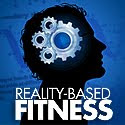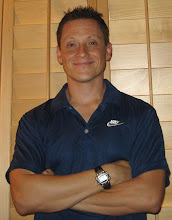On friday the 3rd of October, 2008, I attended a Nutrition seminar down in Tucson, Arizona called
The Winning Edge 2008: Sepcial Topics in Sports Nutrition. It was affiliated with the University of Arizona and was a good (not great) seminar to attend. I did get some good tips out of the seminar however and will review the speakers and topics covered below in this post, and sbusequent posts.
Lecture #1: Nutrition Periodization and Exercise Performance
Bob Seebohar, MS, RD, CSSD, CSCS
This first lecture was by far the most interesting and dynamic of the day. Bob Seebohar is an excellent presenter and was quite entertaining in his delivery of his powerpoint presentation. His basic gig was to explain his simplified approach to Nutrition Periodization which can be summed up nicely by one if his initial slides:
SUPPORT the body's energy needs assoicated with the different training VOLUME and INTENSITY stressors throughout the training year to elicit positive physiological responses.
He also repeated gave the mantra : Eat to train, don't train to eat." Pretty good advice in my opinion. In Bob's experience, the biggest mistakes are made by athletes during the transitional and off-season when athletes often fail to reduce both their total caloric intake and/or alter their macronutrient ratios to meet the demands of their trainig. The end result, in Bob's opinion, are athletes with higher bodyfat percanteges and decreased ability to burn stored fat as fuel. In essence, he stated that athletes are often too reliant on dietary and supplementary carbohydrates which blocks efficient fat oxidation and increases the onset and severity of fatigue during training. This was interesting to hear as Bob primarily works with elite (inclduing Olympic level) endurance athletes which have notroisouly been known for their impressive carbo-eating capabilities.
Bob then went on to give examples of how to create a meal for any seaon of the year using a plate/pie-chart ratio formula. In essence, the more active and intense the trainig, the greater the caloric content can be and the higher level of carbohydrate consumption; kind of common sense huh? So just as you wouldn't do the exact same training program day in a day out, nor should anyone's food remain exactly indentical all year round. Again, this makes intuitive sense.
All in all, this was a very infromative lecture but not groudnbreaking by any mean.







